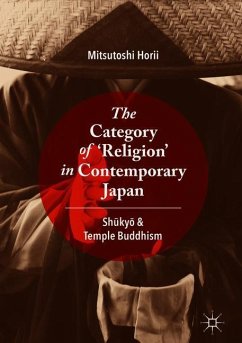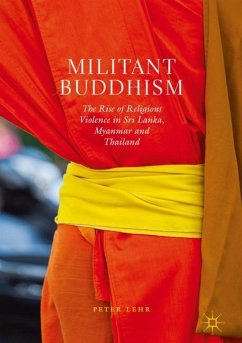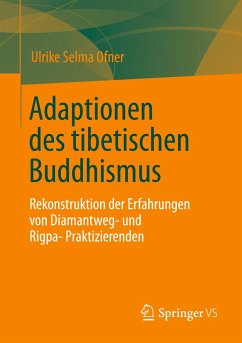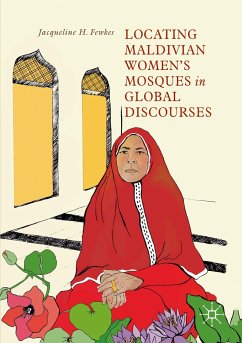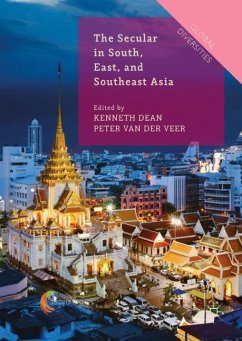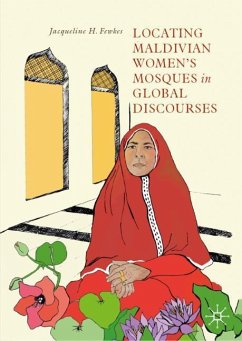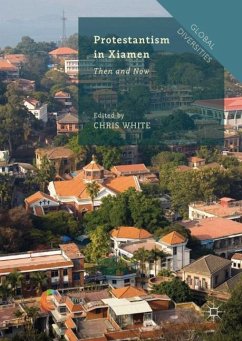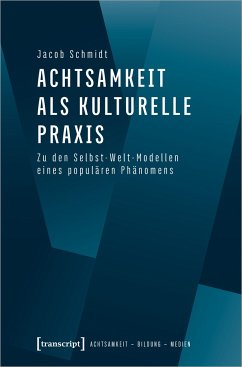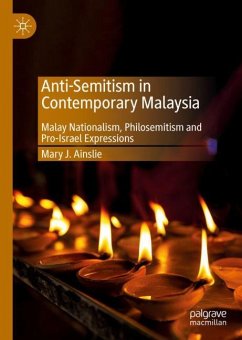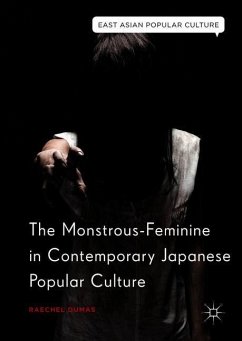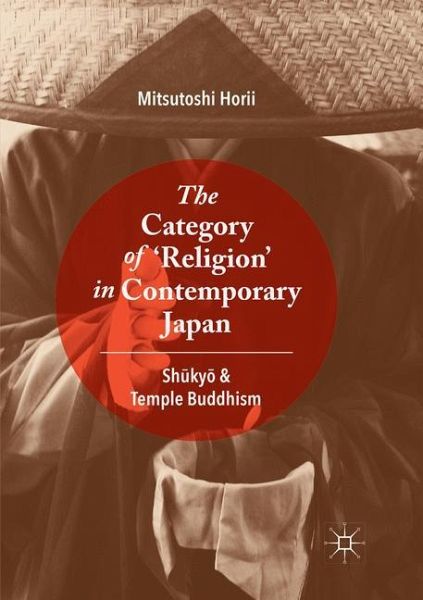
The Category of 'Religion' in Contemporary Japan
Sh¿ky¿ and Temple Buddhism
Versandkostenfrei!
Versandfertig in 6-10 Tagen
68,99 €
inkl. MwSt.
Weitere Ausgaben:

PAYBACK Punkte
34 °P sammeln!
This book critically examines the term 'religion' (shuky ) as a social category within the sociological context of contemporary Japan. Whereas the nineteenth-century construction of shuky has been critically studied by many, the same critical approach has not been extended to the contemporary context of the Japanese-language discourse on shuky and Temple Buddhism. This work aims to unveil the norms and imperatives which govern the utilization of the term shuky in the specific context of modern day Japan, with a particular focus upon Temple Buddhism. The author draws on a number of popular publ...
This book critically examines the term 'religion' (shuky ) as a social category within the sociological context of contemporary Japan. Whereas the nineteenth-century construction of shuky has been critically studied by many, the same critical approach has not been extended to the contemporary context of the Japanese-language discourse on shuky and Temple Buddhism. This work aims to unveil the norms and imperatives which govern the utilization of the term shuky in the specific context of modern day Japan, with a particular focus upon Temple Buddhism. The author draws on a number of popular publications in Japanese, many of which have been written by Buddhist priests. In addition, the book offers rich interview material from conversations with Buddhist priests.
Readers will gain insights into the critical deconstruction, the historicization, and the study of social classification system of 'religion', in terms of its cross-cultural application to thecontemporary Japanese context. The book will be of interest to students and scholars across a range of disciplines including Japanese Studies, Buddhology, Religious Studies, Social Anthropology, and Sociology.
Readers will gain insights into the critical deconstruction, the historicization, and the study of social classification system of 'religion', in terms of its cross-cultural application to thecontemporary Japanese context. The book will be of interest to students and scholars across a range of disciplines including Japanese Studies, Buddhology, Religious Studies, Social Anthropology, and Sociology.



